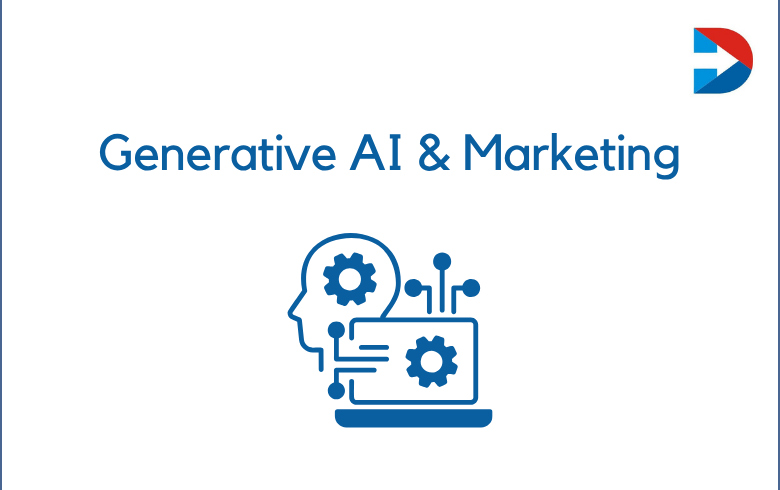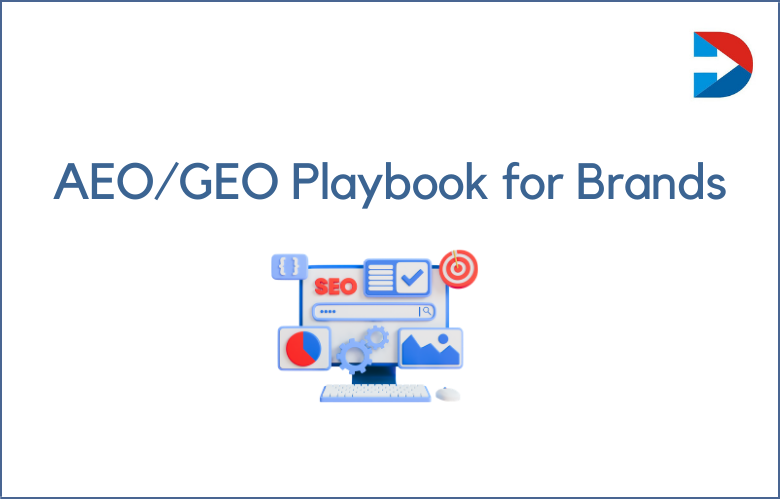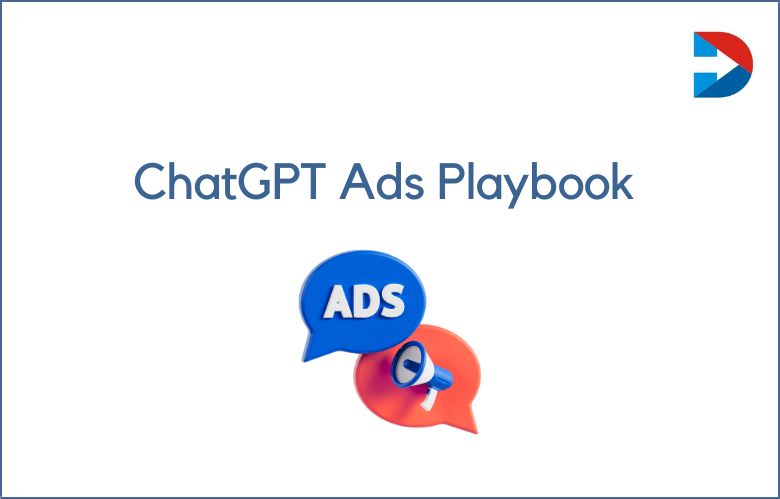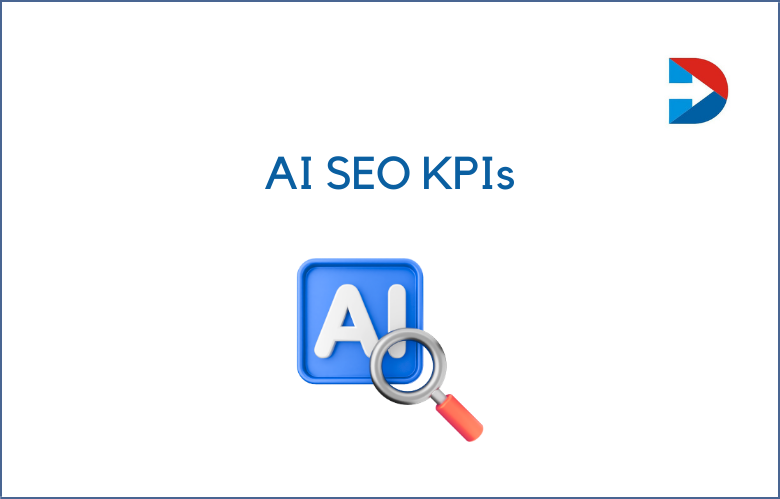Imagine a marketing world where personalized campaigns for millions are crafted in minutes, captivating ad copy and visuals are generated on demand, and customer insights are unearthed with unprecedented speed and depth. This is not a far-fetched future;it’s rapidly becoming a reality,powered by Generative Artificial Intelligence (Gen AI). Recent analyses suggest that Gen AI tools could automate up to 70% of content creation and management tasks by 2027,fundamentally altering the industry’s landscape.
Unlike analytical AI,which focuses on interpreting existing data,Generative AI can produce new text,images,audio, video,and even code based on patterns. Examples include generating human-like responses in chatbots,drafting marketing emails,designing unique product visuals,or composing music for advertisements.
The advent of Gen AI represents a paradigm shift for marketing,moving beyond incremental improvements offered by previous technologies. It’s not just automation;it’s notation,enabling marketers to achieve new levels of creativity, personalization,and efficiency. This technology democratizes sophisticated content creation capabilities, offering powerful tools to amplify human talent.
We will explore Gen AI’s core capabilities explore its profound impact on various marketing functions,offer strategic guidance for its implementation,consider the associated challenges and ethical implications,and look toward the future trajectories of Gen AI in this dynamic field. We aim to equip marketing professionals with the insights to effectively navigate and leverage this transformative technology.
Understanding Generative AI:Key Capabilities for Marketers
To fully grasp Gen AI’s core functionalities relevant to marketers. This section provides a concise overview, laying the foundation for the practical applications discussed later.
Core Generative Al Capabilities
- Text Generation:Large Language Models (LLMs) like GPT-4 and its successors can create a wide array of textual content,from short-form ad copy and social media posts to long-form articles,email campaigns,and video scripts. They can also summarize text,rephrase content,and adapt tone and style.
Image and Video Synthesis:Diffusion models and Generative Adversarial Networks (GANs) can generate unique images and, increasingly, video sequences from textual prompts. This is invaluable for creating ad creatives, social media visuals, product mockups, and illustrative content without traditional photoshoots or extensive graphic design.
- Data Analysis and Insight Generation:While traditional AI excels here, Gen AI adds a layer by synthesizing insights from unstructured data (like customer reviews or social media conversations) and articulating these insights in natural language.
- (Code Generation:An emerging but rapidly advancing capability is Gen AI’s aAI’ AI’s tyAI’s tyateI’ for tasks like building landing pages, creating email templates, or developing simple web applications, potentially reducing reliance on specialized developers for basic marketing tech needs.
Distinction from Traditional Analytical AI
It’s crucial to differentiate traditional analytical AI. Analytical AI, which has been common in marketing for years, focuses on tasks like predictive analytics (e.g. forecasting sales, identifying at-risk customers) or customer segmentation based on existing data. Gen AI, in contrast, is about creation. While analytical AI might tell you what happened or what might happen,Gen AI can help you create the content and experiences to make things happen.
Illustrative Tool Categories
Marketers will encounter various Gen AI tool categories. For instance:
- LLM-powered platforms (e.g.,Jasper,Copy.ai,or direct access to models like OpenAI’s OpenAI series from brainstorming to final copy. Their basic function is to process a prompt and generate relevant text.
Image generation tools (e.g.,Midjourney,DALL-E 3,Stable Diffusion) convert text descriptions into visual art or photorealistic images. Marketers can use these to visualize concepts or quickly produce unique brand assets.
The focus here is not on specific products,which evolve rapidly,but on understanding the transformative capabilities these categories of tools bring to the marketing toolkit. They empower marketers to generate diverse content forms quickly, test new ideas efficiently, and personalize communications at a scale previously unimaginable.
Generative AI’s Impact on Core Marketing
Generative AI is not merely a new tool but a fundamental catalyst, reshaping the very fabric of modern marketing. Its ability to create, personalize, and analyze at scale unlocks new strategic possibilities and demands re-evaluating established practices across various marketing domains.
Hyper-Personalization at Scale: Redefining Customer Journeys
The long-held marketing aspiration of true one-to-one personalization is becoming attainable with Gen AI. By processing and synthesizing vast quantities of customer data, such as demographics, past purchase history, online behavior, psychographic profiles, and even real-time interaction data, Gen AI can create deeply individualized customer experiences.
This enables the dynamic tailoring of:
- Emails:Content,subject lines,and send times optimized for each recipient.
- Website Experiences:Dynamically adjusting layouts, product recommendations, and calls-to-action based on individual visitor profiles.
- I Product Recommendations:Moving beyond simple collaborative filtering to nuanced suggestions based on a deeper understanding of user needs and context.
Ad Messaging:Crafting ad copy and visuals that resonate specifically with micro-segments or individual users across different platforms.
This marks a significant shift from broad demographic or behavioral segments to truly individualized marketing executed at scale. For instance, an e-commerce platform could use Gen AI to create unique product descriptions for the same item, tailored to appeal to different customer personas visiting its site, one emphasizing technical specifications for an expert, another highlighting ease-of-use for a novice.
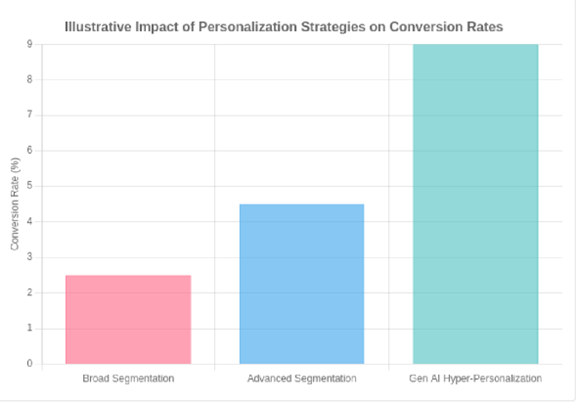
Figure 1:Illustrative comparison of conversion rates based on personalization depth. Gen AI aims for significantly higher rates through individualized experiences. Data is hypothetical.
Content Creation Reimagined:From Ideation to Accelerated Output
Gen AI is revolutionizing the content creation pipeline. It’s a powerful assistant in automating and augmenting the generation of diverse content formats,including blog post drafts,social media updates,video scripts,email sequences,and countless ad copy variations. Marketers can leverage Gen AI for:
- Ideation and Brainstorming: Overcoming creative blocks by generating ideas, headlines, or angles for campaigns.
- Outlining and Drafting:Quickly creating structured outlines or first drafts of articles, reports, or scripts.
- Versioning and Localization:Producing multiple versions of content tailored for different platforms,audiences,or languages at an unprecedented speed.
The impact on content velocity,volume,and variety is profound. Teams can produce more content faster, allowing for more frequent engagement and broader reach. However,this capability demands a crucial balance. Gen AI is a powerful tool,but human oversight remains paramount for ensuring factual accuracy,maintaining brand voice consistency,infusing genuine creativity and emotional nuance,and aligning content with strategic objectives. Ethical considerations,such as originality and transparency,also come to the fore.
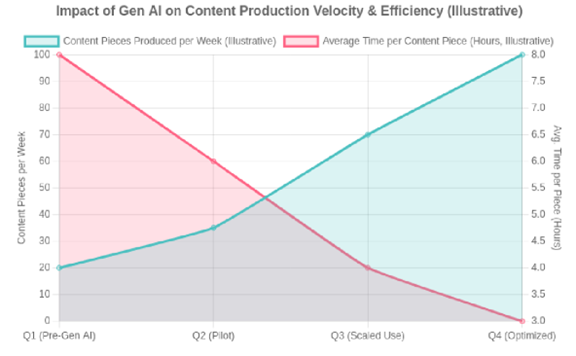
Fig 2: Conceptual representation of Gen AI’s eAIs on content output aAI’s feAI’ over time. Data is hypothetical.
Elevating Customer Experience and Engagement
Gen AI is significantly upgrading customer interactions. It powers more sophisticated,contextual,and human-like chatbots and virtual assistants capable of handling complex queries,providing 24/7 support,and engaging customers proactively. These AI agents can generate real-time personalized responses by accessing and interpreting customer history and context.
Beyond support,Gen AI can create interactive content formats like personalized quizzes or dynamic storytelling experiences that adapt based on user input. Furthermore,Gen AI can assist in analyzing customer sentiment from feedback channels (reviews,surveys,social media) with greater nuance,allowing businesses to understand and respond to customer needs empathetically. The overall impact is often seen in improved customer satisfaction scores, increased support efficiency(freeing human agents for more complex issues),and stronger brand loyalty.
Revolutionizing Market Research,Insight Generation,and Trend Forecasting
The ability of Gen AI to rapidly synthesize and interpret vast,unstructured datasets from diverse sources, such as social media conversations,news articles,industry reports,academic papers,and customer feedback forums, is a game-changer for market research. Marketers can leverage Gen AI to:
- Identify Emerging Trends:Spot nascent consumer preferences or market shifts much earlier than traditional methods.
- To Understand Consumer Sentiment:Gain nuanced insights into consumers’ feelings about various topics.
(Generate Competitive Intelligence:Quickly summarize competitor activities, strengths, and weaknesses from public data.
Augment Predictive Analytics:Gen AI can help formulate hypotheses or identify novel variables for predictive models, potentially improving forecasting accuracy for market shifts or product demand.
This accelerates the entire research cycle, from data collection and analysis to insight articulation. Marketers can receive deeper, more actionable intelligence, enabling more agile and informed strategic decision-making. For example, a Gen AI could analyze thousands of product reviews, identify common complaints, and suggest specific product improvements in natural language.
Optimizing Advertising Campaigns and Media Effectiveness
Gen AI offers powerful capabilities for enhancing advertising campaign performance. One key application rapidly generates many ad creative text variations, image concepts, and even video storyboards, facilitating extensive A/B/n testing at a previously unfeasible scale. This lets marketers quickly identify the most effective messaging and visuals for different audience segments.
Personalization also extends to ad content,with Gen AI able to dynamically tailor ad messaging and visuals for highly specific micro-segments based on real-time data. This relates closely to Dynamic Creative Optimization (DCO),where AI algorithms assemble and serve each user’s most relevant ad components. Furthermore, Gen AI can assist in interpreting complex campaign performance data,identifying patterns,and suggesting specific optimizations for bidding strategies,audience targeting,or creative adjustments,thus improving overall media effectiveness and ROI.
Reshaping SEO,Content Discovery,and Search Interactions
Generative AI significantly influences Search Engine Optimization (SEO) strategies and the broader landscape of content discovery. It can be applied to:
- Keyword Research & Topic Clustering: Generating comprehensive lists of relevant keywords and organizing them into logical topic clusters to inform content strategy.
- Meta-Description & Title Tag Writing: Crafting compelling, SEO-friendly meta descriptions and title tags at scale.
- Drafting SEO-Optimized Content: Creating initial drafts of articles or web pages structured around target keywords and user intent (though requiring significant human review and editing for quality and E-E-A-T).
The rise of AI-generated content presents opportunities and challenges for search engine rankings. Search engines like Google are evolving, with initiatives like the Search Generative Experience(SGE) directly incorporating AI-generated summaries and answers into search results. The key for marketers will be ethically leveraging Gen AI for SEO by creating genuinely valuable, high-quality content that adheres to Google’s (ExGoogle’s) guidelines for Google’s set of policies and Trustworthiness. AI can assist research and drafting, but human expertise and original insight remain critical for ranking well and providing genuine value.
Key Takeaways
- Content Creation: This process massively accelerates content ideation, production, and variation, demanding human oversight for quality and brand alignment.
- Customer Experience: Powers sophisticated, empathetic, and efficient AI-driven customer support and engagement.
- Market Research: Delivers faster, deeper insights from vast datasets, improving trend identification and strategic agility.
- Advertising Optimization: Facilitates rapid creative testing and personalized ad delivery for enhanced campaign performance.
- SEO & Search: Offers tools for content optimization while necessitating a focus on E-E-A-T principles in an evolving search landscape.
Strategic Implementation: Leveraging Generative AI in Your Marketing
Successfully integrating Generative AI into marketing operations demands a strategic, thoughtful approach. This section guides businesses in harnessing Gen AI’s potential. Purpose-Driven Gen AI Marketing Strategy.
Identify Specific Goals and Pain Points: Determine where Gen AI can deliver the most significant value. Is it content bottlenecks, poor personalization, inefficient customer service, or a lack of deep market insights? Clear objectives will guide technology choices and measure success.
Start with Pilot Projects: Begin with small, manageable projects to test specific Gen AI applications, understand their capabilities and limitations, and demonstrate tangible ROI. This allows for learning and iteration before wider deployment.
Plan for Integration:Consider how Gen AI tools integrate with the existing MarTech stack(CRM, marketing automation, analytics platforms) and data infrastructure. Seamless integration is key to maximizing value, and data quality and accessibility are critical prerequisites.
Develop a Phased Roadmap: Outline a clear roadmap for adoption, starting with high-impact, lower-risk applications and gradually scaling to more complex or transformative uses. This roadmap should include milestones, resource allocation, and training plans.
Navigating the Toolkit:Selecting and Implementing Gen AI Solutions
Categories of Tools:These range from specialized content generation platforms (for text, images,and video),AI writing assistants,and image/video synthesizers to analytics tools with embedded Gen AI features for insight reporting. Some platforms offer end-to-end capabilities,while others focus on specific tasks.
Evaluation Criteria
Functionality:Does it meet your specific needs? Evaluate the quality of output, customization options, and control.
Ease of Use:How intuitive is the interface? What is the learning curve for your team?
Scalability:Can the tool support your needs as your usage grows?
Vendor Support & Roadmap:Is the vendor reputable, offering good support and a clear vision for future development?
Cost:Understand the pricing model (subscription, usage-based) and overall TCO.
Build vs. Buy vs. Integrate
Buy:Off-the-shelf SaaS solutions are often the quickest and easiest to implement for everyday marketing tasks.
Integrate:Leveraging APIs from foundational model providers (e.g., OpenAI, Anthropic, Google) allows for custom solutions built into existing platforms.
Build:Developing proprietary Gen AI models is resource-intensive and typically reserved for large enterprises with specific, complex needs and significant AI talent.
Critical Challenges,Risks,and Ethical Considerations
Adopting Gen AI is not without its challenges and ethical quandaries. Marketers must proactively address the following:
- Data Privacy and Security:Using customer data (especially PII) with Gen AI tools requires strict adherence to privacy regulations (e.g.,GDPR,CCPA). Ensure data is anonymized or pseudonymized where appropriate, and understand the data handling practices of any third-party Gen AI vendors.
- Accuracy,Misinformation,and Bias:Gen AI models can “hallucinate” (generate false information) or “perpetuate biases in their training data. All AI-generated content, particularly factual claims or sensitive advice, must be rigorously fact-checked and reviewed by humans.
- Human Oversight and Brand Voice:While Gen AI can accelerate content creation, human creativity, critical judgment, and editing are essential to ensure quality, originality, brand authenticity, and ethical communication. Over-reliance can lead to generic or off-brand content.
- Intellectual Property and Copyright:The legal landscape around AI-generated content and copyright is still evolving. Be aware of potential IP issues related to training data and the ownership of AI-created outputs. Clear disclosure of AI-generated content may be necessary or advisable.
Workforce Implications
Gen AI will change marketing roles. Focus on upskilling and reskilling marketing teams to work effectively with AI tools (e.g., prompt engineering, AI output evaluation, strategic oversight). Manage change proactively and address concerns about job displacement.
Measuring the ROI and Proving the Value of Gen AI Marketing. Measuring the criticality of Gen AI initiatives is necessary to justify continued investment. Key Performance Indicators (KPIs) may include:
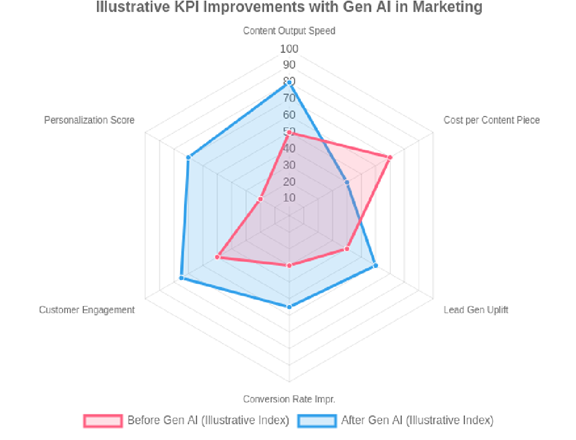
Figure 3:Conceptual radar chart showing potential shifts in key marketing KPIs after Gen AI adoption. Values are indicative.
Beyond these, consider metrics like campaign time-to-market, customer support resolution times, and employee satisfaction within the marketing team. Methodologies for attributing outcomes involve A/B testing AI-assisted approaches against traditional methods, tracking unique engagement with AI-generated content, and conducting cohort analyses. A clear business case, supported by pilot project data and projected efficiencies or revenue gains, is essential for securing ongoing investment and expanding Gen AI utilization.
The Horizon:Future Trajectories of Generative AI in Marketing
Generative AI future applications in marketing are likely to be even more transformative. Looking ahead, we can anticipate several key trajectories:
- Sophisticated Multimodal Generation:Future AI models will likely seamlessly integrate text, image, audio, and video generation. Imagine prompting an AI to create an entire marketing campaign, from strategy outline and target audience personas to ad copy, visuals, video scripts, and even interactive landing page code, all coherently linked.
- Improved Reasoning and Strategic Capabilities:While current models excel at content generation, future iterations may possess enhanced reasoning abilities. This could prevent AI from executing tasks and contributing more significantly to strategic planning, campaign optimization based on complex market dynamics, and even proactive identification of novel marketing opportunities.
- Hyper-Realistic Simulations for Market Testing:Gen AI could power highly realistic simulations of market environments or customer responses. Marketers can test entire campaigns or product launch strategies in these virtual sandboxes before committing significant resources and receiving predictive feedback on potential outcomes.
The Evolving Role of the Marketer
The rise of Gen AI does not spell the end of the marketing professional; rather, it signals an evolution of the role. Marketers will transition from primarily being “doers” of repetitive tasks to becoming:
AI Orchestrator Prompt Engineers: Skillfully guiding AI tools to produce desired outputs through effective prompting and iterative refinement.
Ethicists& Quality Curators: Ensuring AI outputs are accurate, ethical, brand-aligned, and genuinely valuable to the audience. Critical thinking and editorial judgment will become even more vital.
Data Interpreters& Insight Drivers: Leveraging AI-generated insights to make better decisions and understand complex market dynamics.
Continuous learning, adaptability, and developing new skills such as AI literacy, prompt engineering, data interpretation, and ethical AI governance will be critical for success in this new era. New specialized roles, such as” AI Marketing Strategist, “”Prom Engine “ring Specialist, or” AE “Officer for Marketing, may also emerge.
Conclusion
Generative AI is undeniably setting a new frontier for modern marketing. As we have explored, its capacity to revolutionize personalization, content creation, customer engagement, market research, and advertising optimization presents unparalleled business opportunities.
However, the journey to unlocking Gen AI’s potential is navigated with stratAI’s foresight, a commitment to ethical principles, and an unwavering focus on human-centricity. The most successful adoption will not be about replacing human ingenuity but augmenting it, fostering a collaborative synergy between human marketers and intelligent machines.
The future of marketing will be defined by agility, intelligence, and an enhanced ability to deliver value. Marketers are encouraged to embrace this transformative wave: to explore, experiment, learn, and adapt. The goal is not AI replacing humans but humans augmented by AI, creating previously unimaginable value and experiences.
The Impact of Generative AI on Modern Marketing Strategies: FAQs
What Is Generative AI, I, and How Is It Different From Traditional Analytical AI?
Unlike traditional analytical AI, Generative AI focuses on interpreting existing data to make predictions or segment audiences. It produces original outputs, helping marketers generate creative assets instead of analyzing trends.
How Can Generative AI Personalize Marketing Campaigns At An Individual Level?
Gen AI processes vast amounts of customer data like behavioral history, preferences, demographics and uses it to craft tailored messages for each individual. From personalized email subject lines to dynamically generated landing pages, it enables one-to-one marketing at scale.
What Are The Main Capabilities Of Generative AI That Marketers Should Know About?
Core capabilities include text generation (copywriting, email drafts, scripts), image and video creation, insight extraction from unstructured data, chatbot conversation enhancement, and even basic code generation for web assets or templates.
How Does Gen AI Help In Creating Text, Images, And Videos For Marketing?
With just a few prompts, Gen AI can create persuasive ad copy, generate branded images, and produce short video scripts or concepts. These outputs help marketers rapidly scale content production without depending entirely on human design or writing teams.
Can Generative AI Tools Replace Human Creativity In Content Creation?
No, but they can augment it. Gen AI provides a powerful starting point helping brainstorm ideas, overcome creative blocks, or generate variations. Human oversight remains crucial for strategy, emotional nuance, storytelling, and quality control.
What Types Of Marketing Tools Are Powered By Generative AI Today?
Popular Gen AI tools include text generation platforms (like Jasper, Copy.ai), visual creation tools (like DALL·E, Midjourney), AI video platforms (like Synthesia), and AI-integrated marketing suites offering insights, copy, design, and automation in one interface.
How Is Generative AI Changing Customer Journey Mapping And Personalization?
Gen AI can adapt messages, content, and digital experiences based on real-time user behavior and psychographic data. It transforms static journeys into dynamic, highly personalized experiences that evolve with the individual’s preferences and interactions.
What Are Some Examples Of Hyper-Personalization Using Generative AI?
Examples include product descriptions tailored to different buyer personas, personalized video messages, chatbots that adapt tone and language based on user profiles, and content recommendations informed by deep learning from customer interactions.
How Can Marketers Use Gen AI For Faster Content Ideation And Drafting?
Marketers can prompt Gen AI tools to generate campaign ideas, outline blog posts, write headlines, and draft scripts. This helps reduce time spent on brainstorming and allows teams to focus more on refinement and storytelling.
In What Ways Does Gen AI Improve Email, Ad Copy, And Web Content Production?
It automates the generation of multiple content variations, adapts tone to audience segments, and optimizes calls-to-action. Marketers can quickly A/B test and iterate messaging with real-time feedback.
What Role Does Gen AI Play In Enhancing Customer Service Experiences?
Gen AI powers more advanced chatbots that offer human-like responses, personalized support, and context-aware recommendations. It also assists agents with response suggestions and knowledge-base summarization.
How Can Generative AI Help Analyze Customer Feedback Or Sentiment More Deeply?
By scanning reviews, survey responses, and social media posts, Gen AI can detect sentiment, identify recurring themes, and summarize insights in natural language, helping marketers respond to customer needs faster and more empathetically.
What Impact Does Generative AI Have On Market Research And Trend Forecasting?
It accelerates insight generation from vast, unstructured data sources like forums, news articles, and user feedback. Gen AI can highlight emerging trends, competitor activities, or consumer sentiments that manual analysis might miss.
How Can Gen AI Improve Ad Testing, Creative Versioning, And ROI Tracking?
It allows for rapidly generating multiple ad creatives and copy variations, enabling large-scale A/B/n testing. Additionally, it can analyze campaign performance and suggest optimization actions to improve results and increase ROI.
How Is Search Engine Optimization (SEO) Being Affected By Generative AI?
Gen AI helps with keyword research, content clustering, meta-tag generation, and drafting SEO-friendly content. It also enables scale, allowing teams to produce more optimized content faster, though human review is essential to meet quality standards and E-E-A-T guidelines.
What Are The Key Ethical Risks When Using Generative AI In Marketing?
Risks include misinformation, data privacy concerns, content bias, and over-reliance on automation. Marketers must ensure transparency, disclose AI use when necessary, verify facts, and uphold brand authenticity and ethics.
How Should Companies Strategically Implement Gen AI In Their Marketing Stack?
Start with a clear goal, run small pilot projects, ensure integration with existing tools (CRM, CMS, analytics), and train teams in prompt design and content review. A phased roadmap helps scale Gen AI use sustainably and strategically.
What Skills Will Marketers Need In A Future Powered By Generative AI?
Essential skills include prompt engineering, content evaluation, data interpretation, ethical judgment, and proficiency in AI tools. Strategic thinking, creativity, and storytelling remain indispensable alongside tech-savvy capabilities.
How Can Businesses Scale The Return On Investment (ROI) Of Gen AI Initiatives?
Key metrics include content production speed, engagement rates, campaign effectiveness, cost savings, time to market, and sentiment improvement. Through A/B testing and analytics dashboards, you can compare AI-assisted performance with traditional benchmarks.
What are the future trends in generative AI that marketers should prepare for?
Trends include multimodal content generation (text, video, and audio), AI co-pilots for strategic planning, AR/VR content creation, more powerful personalization engines, and expanded AI integration across every phase of the marketing funnel.

